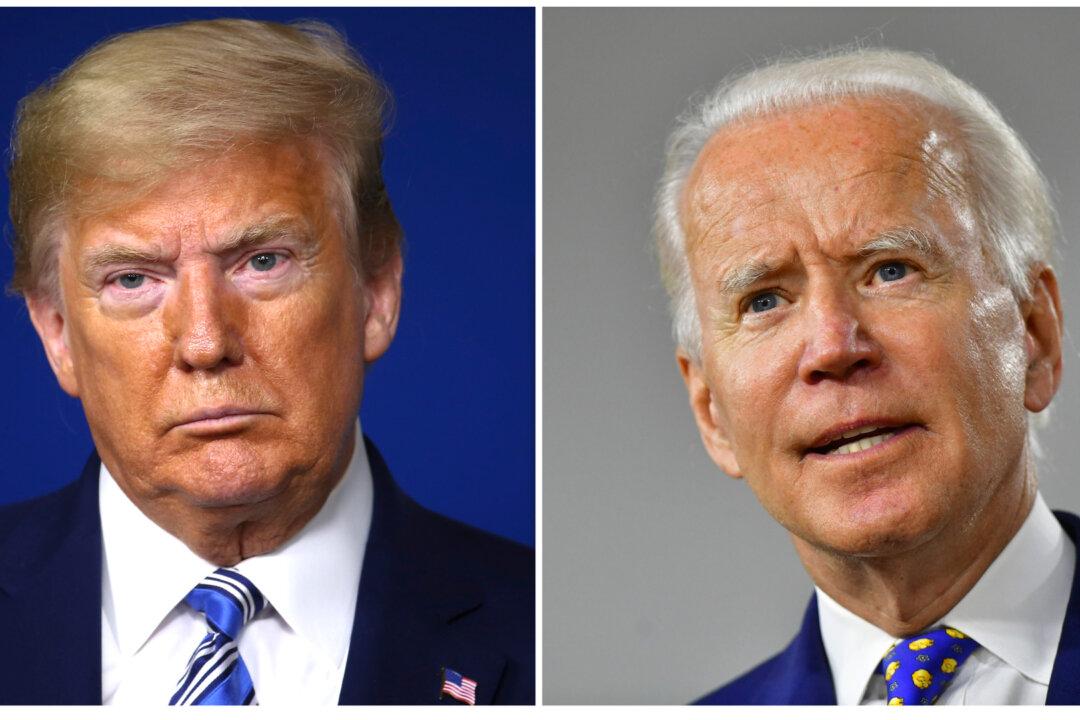President Donald Trump said Thursday that he would like to see the capital gains tax slashed to 15 percent, while his rival in the race for the White House, presumptive Democrat nominee Joe Biden, has called for it to be lifted to a number that would be nearly triple Trump’s proposed tax rate.
Trump told Fox News‘s Maria Bartiromo in a phone interview on Thursday that, if re-elected for a second term, he would push to slash today’s long-term capital gains tax rate, which for income in excess of $441,451 from assets held longer than one year is now taxed at 20 percent.





